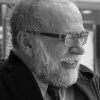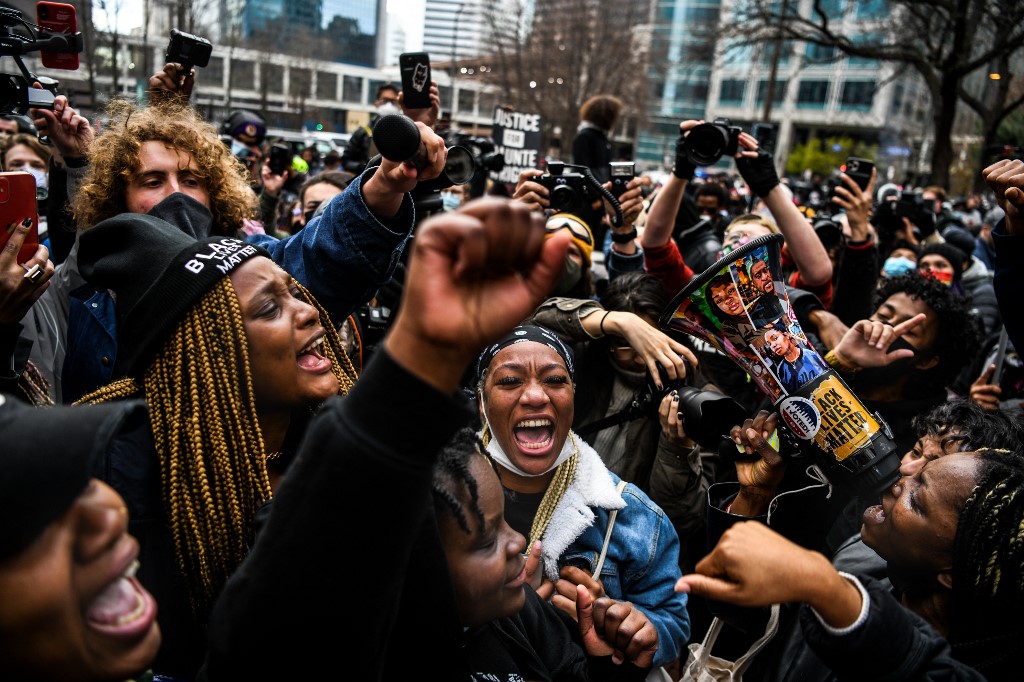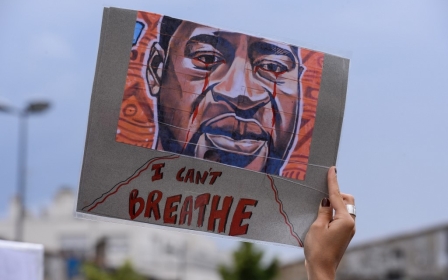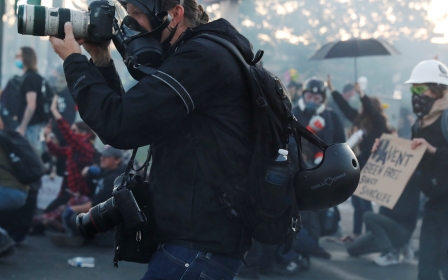Derek Chauvin has faced justice. America must now lift its knee from the world
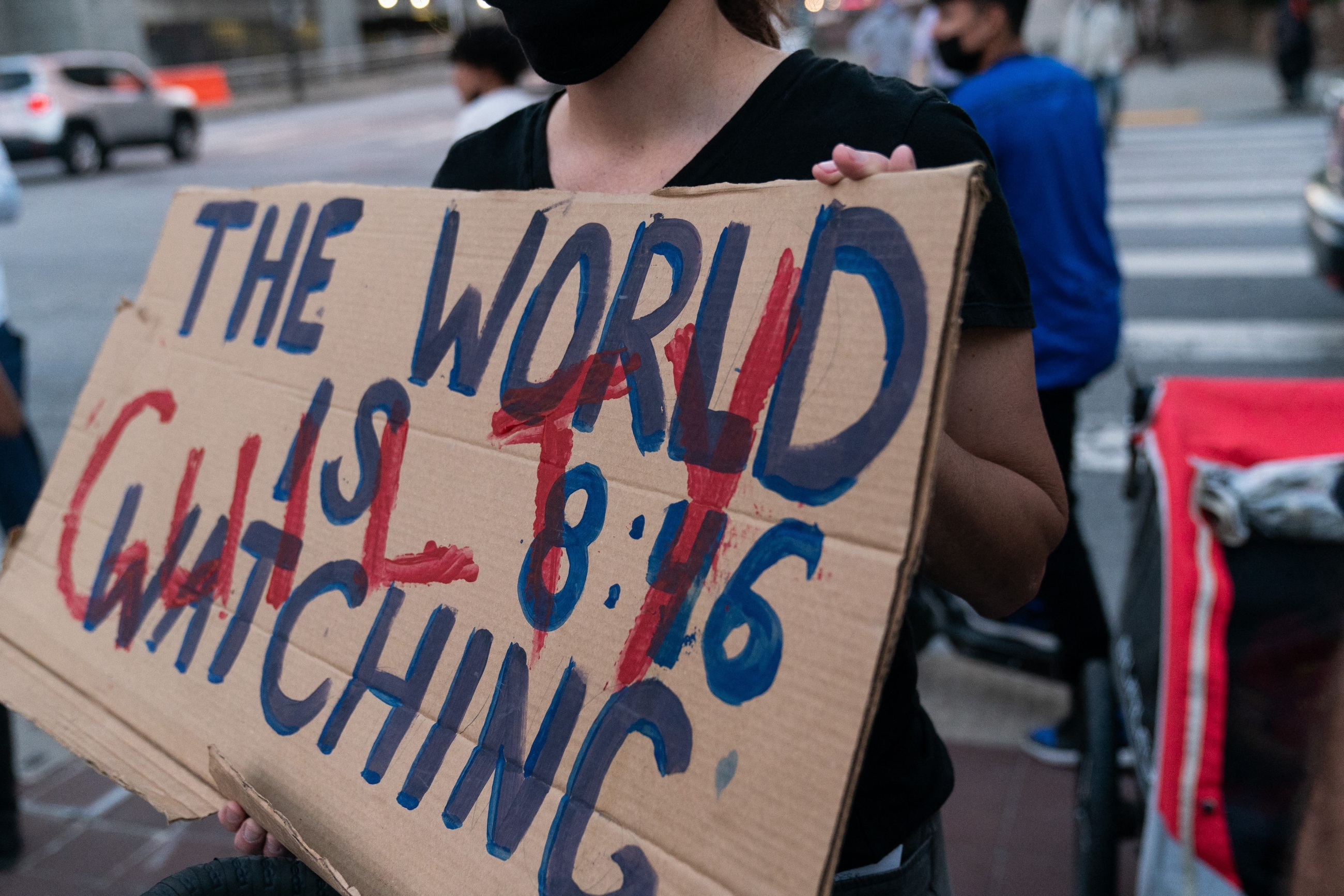
On 20 April 2021, something potentially historic happened in the US - or possibly, nothing particularly historic happened. Derek Chauvin, a former Minneapolis police officer, was convicted of the murder of George Floyd during an arrest on 25 May 2020. He could spend decades in prison.
Was this justice well served - a harbinger of enduring changes to come? Or was it just a token of the moment, leaving the structures of racism and white supremacy intact? Was Chauvin thrown under the proverbial bus to allow the tentacles of racism and systemic apartheid to remain intact in the US, or was his trial an indication of progress towards righting the wrongs that Black people have suffered and endured in their country?
The systematic racism targeting African Americans in the US is integral to the larger context of American triumphalism around the world
Beyond cynical pessimism or delusional optimism, is there a critical path through which we can ascertain the future of racism in America?
Floyd’s murder triggered a widespread and massive social uprising in the US, under the banner of Black Lives Matter. It has had far-reaching global reverberations, particularly in Europe, which has its own nasty history of racism at home and abroad.
Statues came down, open secrets were debated, white privilege was questioned, and columnists sharpened their adjectives and subordinate clauses. As politicians jumped on the bandwagon, the New York Times expanded a major initiative it had started in 2019, the 1619 Project, to mark the 400th anniversary of the beginning of American slavery.
New MEE newsletter: Jerusalem Dispatch
Sign up to get the latest insights and analysis on Israel-Palestine, alongside Turkey Unpacked and other MEE newsletters
The war for equality
Charles M Blow is an opinion columnist at the New York Times who I read regularly. I like the temperament of his prose, his tightly controlled but still judiciously oozing anger against racism that was on full display during the dark days of former US President Donald Trump.
The piece Blow wrote after the conviction of Chauvin swiftly sums up where this country stands. It was headlined: “With the Chauvin Verdict, One Battle Is Won. The War Continues.” The piece continued: “The fight for equality doesn’t end after a single conviction.”
Blow’s main conclusion was as follows: “In this extraordinary case, there was justice for George Floyd. But until justice for Black people killed by the state exists not only in the extraordinary case but also in the mundane, until it is not shocking that an officer is held accountable for murder, the crusade continues. One battle is won, but we are still in the middle of the war for equality.”
Reading this key passage, I decided to focus on the main point and disregard the cliched “crusade” metaphor. Hopefully sometime in the coming centuries, American writers will come up with a better metaphor for Black people’s struggles for equality and justice than one marking a vicious campaign of murder and mayhem against Jews and Muslims in medieval Europe. I am sure this is not what Blow had in mind when referring to Black people rising up for justice and equality in their own country.
More to the point is whether this little victory for justice could be the harbinger of broader structural change in the US - or whether it is just a delusional victory in a country where tens of millions of committed voters wanted Trump to stay in power.
False justice
The causes and consequences of racism are no mystery. It is just history. But a key problem with trying to understand and address racism or misogyny in the US is the notion that if a Black man, or a white woman, or a gay or lesbian or transgender Asian enters the ranks of the US military, then justice has been achieved.
In other words, if poor, impoverished and tyrannised people around the world have the privilege of being bombed by an African American, or a white woman, or a gay or lesbian or transgender fighter-jet pilot, then all is well and dandy in terms of equality and justice for all Americans. Unless and until that absurdity is addressed, there is no hope beyond the liberal gymnastics of one Trump calamity followed by the temporary relief of President Joe Biden, while we wait for Ivanka Trump and Jared Kushner to come back to run for the White House.
This country has had a long and sustained history of slavery, followed by institutionalised white supremacist racism, Jim Crow laws and systematic racism that continues to this day. There is no objective reason to believe it will not continue for another 400 years and more.
The systematic racism targeting African Americans in the US is integral to the larger context of American triumphalism around the world. It is a symptom of a malady - not the malady itself. The malady is the militant triumphalism that presupposes its moral superiority and bombs peoples and their habitats to bring them “peace and prosperity”. This imperial hubris needs to be dismantled.
Racism and militarism
Many leading African Americans have seen the link between domestic racism and globalised militarism, perhaps summarised most powerfully by Martin Luther King Jr. “Somehow these three evils are tied together,” he said in a famous address on 10 May 1967. “The triple evils of racism, economic exploitation, and militarism.”
Here and elsewhere, he wisely and courageously linked racism and militarism to poverty: “Like a monstrous octopus, it spreads its nagging prehensile tentacles into cities and hamlets and villages all over our nation. Some 40 million of our brothers and sisters are poverty-stricken, unable to gain the basic necessities of life.”
About a month before that, on 4 April 1967, in his legendary “Beyond Vietnam” speech, King was even more emphatic: “I knew that I could never again raise my voice against the violence of the oppressed in the ghettos, without having first spoken clearly to the greatest purveyor of violence in the world today: my own government.”
The racist hatred and violence perpetrated on the body of an African American is an extension of the selfsame violence the US directly or indirectly perpetrates around the world
Americans can never unlearn racism if they do not radically recast their county in its domestic and global configurations of racism and violence. African Americans, or Asian Americans, or any other kind of Americans, cannot be implicated in selling billions of dollars of weapons around the globe to nefarious dictatorships or settler colonies alike - allowing them to kill with wanton cruelty - and then expect peace, justice and equanimity in their own county among the races.
The racist hatred and violence perpetrated on the body of an African American is an extension of the selfsame violence the US directly or indirectly perpetrates around the world. Look at the picture of Chauvin putting his knee on Floyd’s neck until he choked to death. Now open your lens wider: “The US dropped an average of 72 bombs every day - the equivalent of three an hour - in 2016.”
Many of these bombs were dropped in Iraq, Syria, Pakistan, Afghanistan, Libya, Yemen and Somalia. If you do not see the link between these two issues, then you are condemned to the Yankee Doodle yo-yo of Trump and Biden.
The real enemy
The answer to how to oppose and end racism is not a mystery. It may in fact lie precisely in the careless use of the “crusade” metaphor when a leading American columnist addresses murderous racism at home, while apparently forgetting its larger-scale mapping around the world and throughout history. To remedy that blind spot, every columnist writing on the future of racial justice in the US must start from the simple, immortal, resounding words of Muhammad Ali, spoken boldly and beautifully in March 1967, more than half a century ago - and take it from there.
As Ali stated: “Why should they ask me to put on a uniform and go 10,000 miles from home and drop bombs and bullets on brown people in Vietnam, while so-called Negro people in Louisville are treated like dogs and denied simple human rights? No, I am not going 10,000 miles from home to help murder and burn another poor nation simply to continue the domination of white slave masters of the darker people the world over. This is the day when such evils must come to an end …
“The real enemy of my people is here. I will not disgrace my religion, my people or myself by becoming a tool to enslave those who are fighting for their own justice, freedom and equality … So, I’ll go to jail, so what? We’ve been in jail for 400 years.”
The views expressed in this article belong to the author and do not necessarily reflect the editorial policy of Middle East Eye.
Middle East Eye delivers independent and unrivalled coverage and analysis of the Middle East, North Africa and beyond. To learn more about republishing this content and the associated fees, please fill out this form. More about MEE can be found here.


